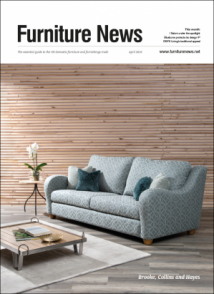The Furniture Industry Research Association has published their latest guide which takes a view of what is, and what could be on the horizon for the furniture sector in terms of alternative materials, and the pressures from specific consumer groups which might accelerate their adoption.
Throughout the 20-page guide, author John Hubbard, technical consultant at FIRA International (the service provider to the Furniture Industry Research Association) considers diversification the industry may need to take in terms of alternative materials, either driven by environmental concerns, consumer preferences or regulation changes.
Sections within the guide include:
- Furniture – innovation, restrictions and standards
- Alternatives to leather including mushroom based, pineapple leaf, kelp based, cactus based, apple based and food waste materials
- Alternatives to wood including hempwood, bamboo, wood composites, lab grown wood, paper based materials, micro-cement and wood transformation technologies
- Bioplastics
- Filling materials
- Alternatives to synthetic textiles
- Chemical treatments
- Smart textiles
- Additive manufacturing
Speaking on the guide, Hubbard said: “During the 20th century furniture manufacture and demand was revolutionised by the introduction of mechanised methods of manufacture and the availability of new materials such as foams and synthetic textiles. Now we see a shift to a greater focus on sustainability and circular economy, alongside consumer groups having a stronger ‘voice’ in demanding choice to meet their values, all amplified by social media. In addition there is no doubt that the use of chemicals, not just in furniture, is coming under greater scrutiny.

John Hubbard, technical consultant at FIRA International
“It’s imperative therefore that the industry continue to look to ‘alternatives’ to key materials such as leather, wood and textiles. Fortunately we can look to other sectors of industry who have been investigating and adopting alternative materials, for example aerospace, automotive, marine or outdoor pursuits. It’s highly likely that some of these materials could be suitable for use within the furnishings sector and may provide solutions to the ever increasing challenges on chemical use and /or sustainability.
“Alongside provoking thought, through this guide I hope to steer members through the myriad of alternative options, looking at the pros and cons of new hardline and softline materials crossing over to our sector, and how far in the future some of these will be readily be accessible.”
‘Horizon Scanning – New Hardline and Softline Materials’ is available to FIRA members via www.fira.co.uk/horizon. Non-members can purchase a copy through the same link.










